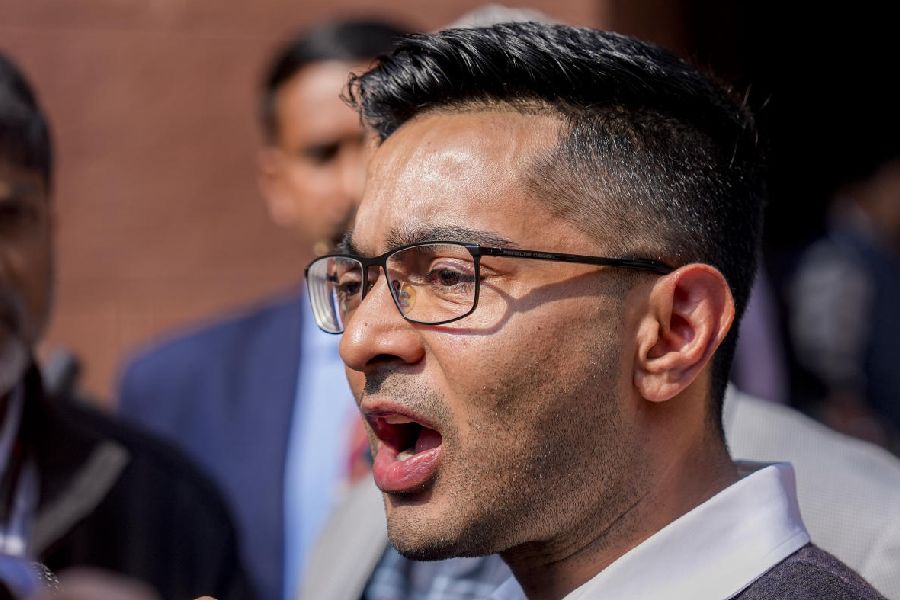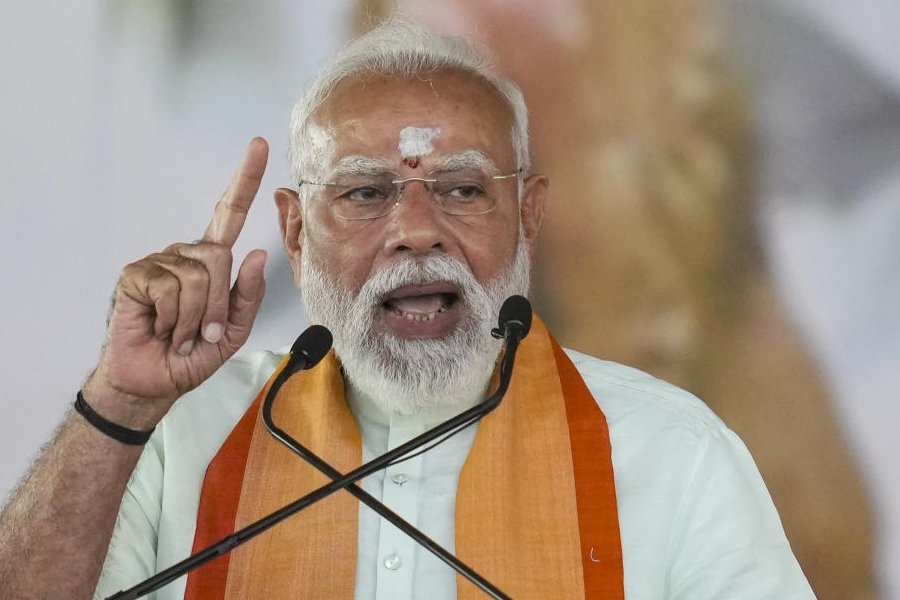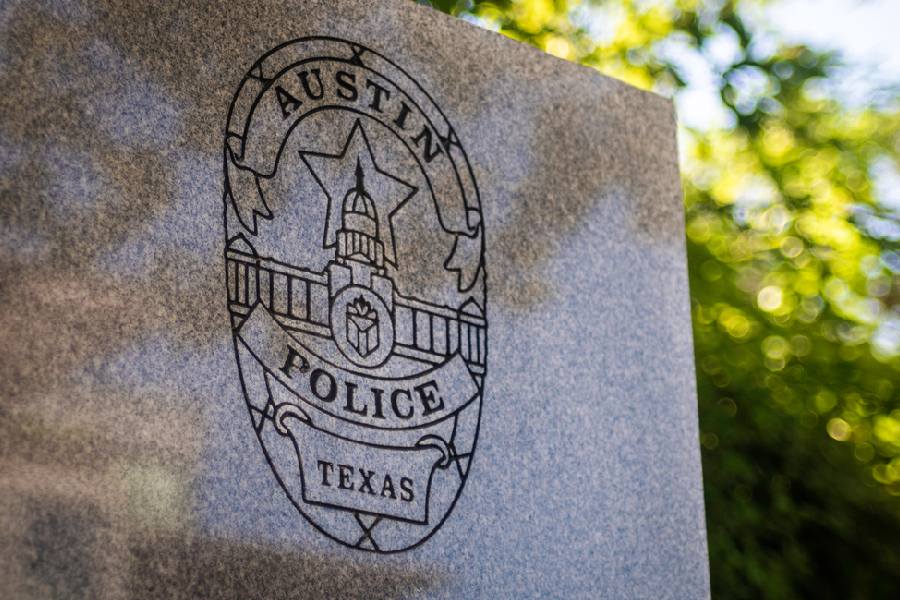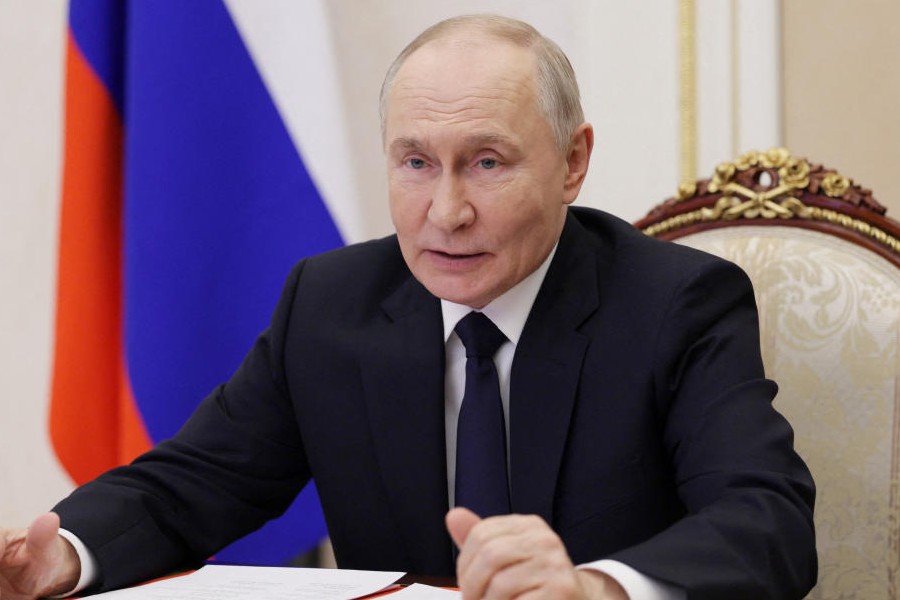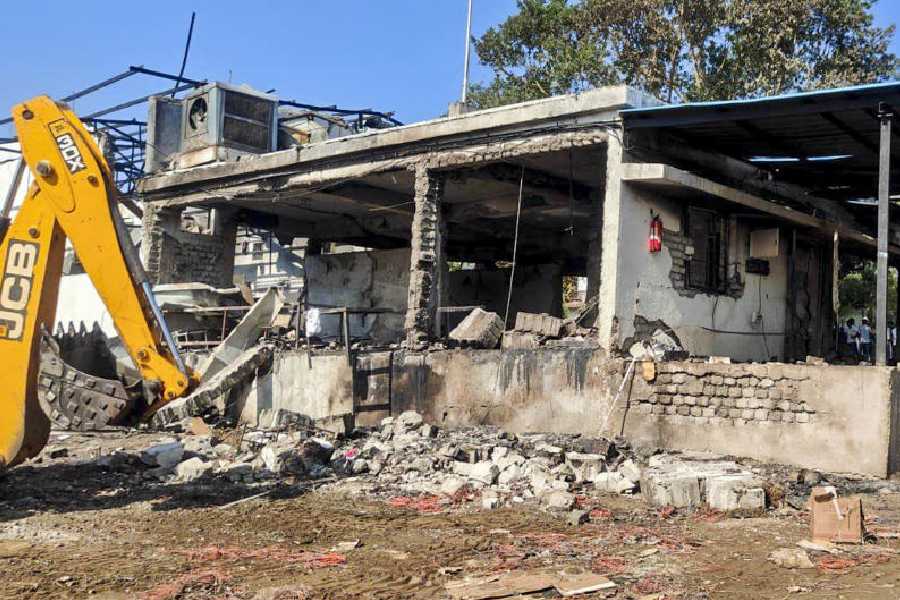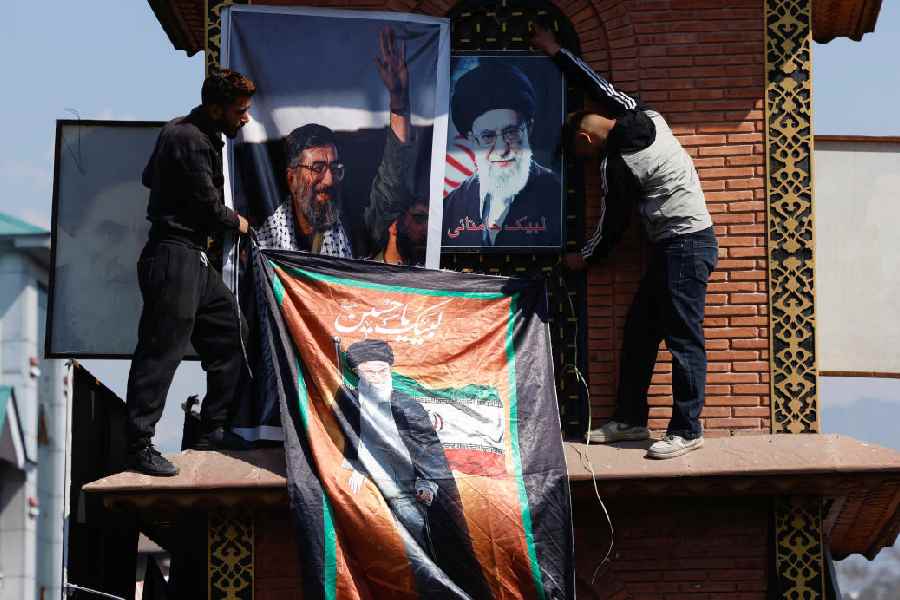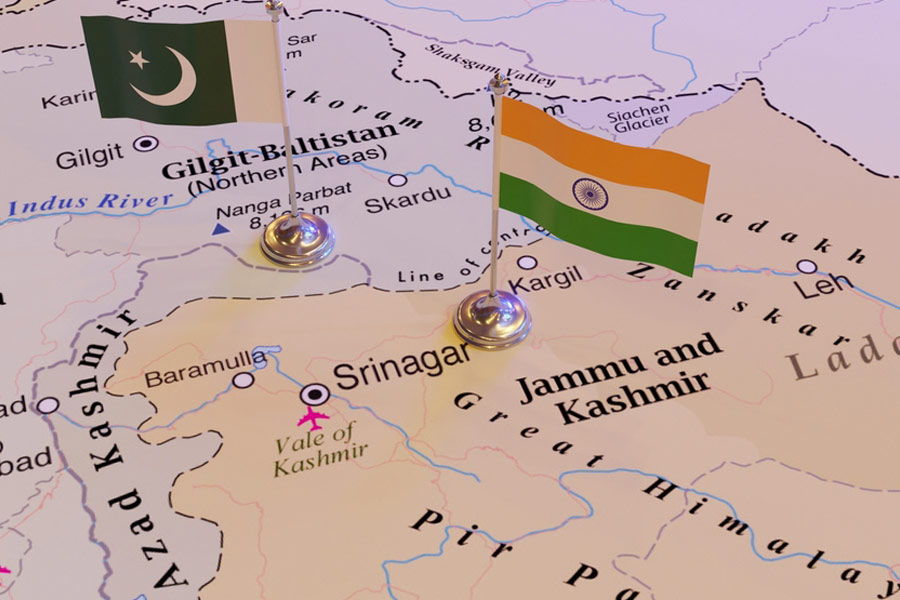 |
| Muhammad Tahir-ul Qadri addresses his supporters from behind a bullet-proof glass during an anti-government rally in Islamabad on Wednesday. (AP) |
Jan. 16: The enigmatic preacher besieging to the political power centres in Islamabad today sought fresh elections in 90 days in an apparent attempt to address concerns that he was trying to derail democracy.
But the powerful military command’s decision to slip into a sphinx mode, maintaining a cool distance from the unfolding political chaos, has stoked speculation about whether the military’s days of political intervention are really, as it claims, over.
“It’s the silence of the legions that is unnerving,” said Ayaz Amir, an opposition member of Parliament.
More than anything else, there is a sense that gears are again shifting in Pakistan, in a direction few dare to predict — bad news for President Asif Ali Zardari’s government, of course, but also potentially for American interests, which see stability in Pakistan as crucial to a smooth withdrawal in Afghanistan next year, as well as a guarantor of the security of the country’s nuclear arsenal.
“There’s a sense that things are snowballing — hard to predict in any way,” said Cyril Almeida, a senior writer at Dawn newspaper.
Trouble from multiple fronts is threatening the civilian government just a few months ahead of elections. The Supreme Court yesterday suddenly ordered the arrest of the Prime Minister. Violence is surging, with militants stepping up deadly attacks against both government forces and religious minorities. And relations with India have dipped, after ill-tempered border skirmishes in which soldiers on both sides were killed.
The chief catalyst of this jolting change comes in the form of the 61-year-old preacher, Muhammad Tahir-ul Qadri, who catapulted himself into the political limelight less than a month ago, and now finds himself issuing ultimatums to Zardari from inside a bullet-proof container within view of the soaring presidential residence.
A giant rally in Lahore last month signalled the start of Qadri’s assault on Pakistan’s political classes, which he derides as incompetent and irredeemably corrupt — a resonant message in a country of high unemployment and crippling electricity shortages. He drove home his message with an intensive television advertising campaign, paid for with generous amounts of money, the origins of which he has not fully explained.
On Wednesday, he stepped up the attack. In a rambling three-hour speech, he gave the government time till tonight to quit and dissolve the national and provincial assemblies to pave the way for electoral reforms.
Qadri, who is camping with his supporters near the parliament there should be no secret compromise between the ruling Pakistan People’s Party and main opposition PML-N on forming a caretaker government to oversee the next general election.
The crowd fell short of the promised “million-man march” but was enough to spook the government. By Tuesday morning, he had pushed forward to a square in front of the parliament.
Speculation that the chief justice and the preacher acted in concert, perhaps with the backing of powerful generals, has electrified the political firmament.
Qadri impatiently dismissed such a notion, saying his support came from God, the Prophet and the 180 million people of Pakistan.
But in the nearby garrison city of Rawalpindi, the generals, led by Gen. Ashfaq Parvez Kayani, watched and waited. Rumours that they are manipulating events from behind the scene are unproved. But, equally, they have done nothing to help the Zardari government.
While Pakistani military rulers once purged their disdain for civilian rule through bloodless coups, the latest breed of generals has chafed under new constraints — the military’s damaged popularity after the humiliating American commando raid in May 2011 that killed Osama bin Laden, sharp scrutiny from an emboldened media, and judicial challenges from the chief justice’s court.
General Kayani, in particular, has stressed that the military’s role in politics is over. But senior generals continue to wield heavy influence behind the scenes — foreign policy is effectively the army’s domain — and contempt for Zardari’s governance is palpable in military circles.
But the opposition challenger Nawaz Sharif, who was himself deposed as Prime Minister by Gen. Pervez Musharraf in 1999, is not much more appealing to the generals. And so there is continuing uncertainty about the military’s commitment to allowing elections to take place within the next four months, as scheduled.
The drawing rooms of the political elite have been humming with speculation of a “soft coup” — the imposition of a technocratic government, backed by the generals — for several years. But for now, the army seems content simply to watch as Qadri takes his “people’s revolution” to the streets of Islamabad, where he has promised an uprising along the lines of the Egyptian revolt in Tahrir Square.
The difference with Egypt, of course, is that Pakistan has no dictator to overthrow. While Zardari’s government has faced criticism as having governed poorly in many respects, it has made considerable strides in anchoring the country’s democratic structures.
Through a series of constitutional amendments, all of them approved by the Opposition, Zardari has gradually devolved power to the provinces, reduced his presidential powers and made the electoral process more transparent. Now, advisers say, he is intent on completing the government’s term in March -- the first time in Pakistan’s history that a civilian government would have seen out its five-year term.
But first that government must make it through the coming days.
Having shut down the centre of Islamabad, and dominated the news cycle, Qadri is unlikely to surrender the limelight easily. His well-organised supporters insist they will not budge until their demands are met, and are encouraging other Pakistanis to join them.
If that happens, the government may have little option but to break up the protest by force. And it would be at that point that the army, sitting quietly on the fence, would be most likely to step in.
Reporting by Nasir Jaffry, New York Times Service and PTI


